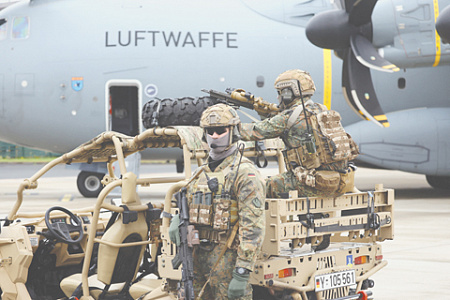
In a significant policy shift driven by the war in Ukraine and a changed security landscape in Europe, Germany is intensely debating the reintroduction of compulsory military service. The discussion, gaining momentum across the political spectrum, centers on the ambition to transform the Bundeswehr, Germany’s armed forces, into the most formidable conventional army on the continent and address significant personnel shortages.
Defense Minister Boris Pistorius has become the leading government proponent for a new form of conscription, actively exploring different models to bolster military readiness. The Russian invasion of Ukraine has starkly highlighted the importance of large, well-staffed land forces, prompting Berlin to reconsider its decision to suspend the draft in 2011—a move made in an era of perceived peace and for financial reasons.
Several proposals are under consideration, with particular attention paid to the Swedish model, which conscripts both men and women based on the military’s needs. To study its implementation, Pistorius recently visited Scandinavian countries. However, introducing a gender-inclusive draft in Germany would present a major legal obstacle, as the country’s Basic Law, or constitution, currently only permits conscription for men. Changing this would require a two-thirds majority in the Bundestag, a difficult threshold to reach given the current political climate and opposition from parties like The Left Party and the AfD.
Despite the political hurdles, the idea is gaining traction with the public. A recent YouGov poll indicated that 54% of Germans support the return of some form of military service, which could also include a non-combat civil service option. Among supporters, a significant number favor making the draft applicable to both men and women. Nevertheless, a substantial 40% of respondents remain opposed to the idea.
Even if a political consensus is reached, officials concede that the practical implementation would be a long-term project. Defense Minister Pistorius has acknowledged that rebuilding the necessary infrastructure, such as barracks for recruits, and training a sufficient number of non-commissioned officers to lead them would be a massive undertaking that could take several years to complete. This signals a profound and lasting reorientation of Germany’s defense posture in response to a new and more dangerous era in European international relations.
